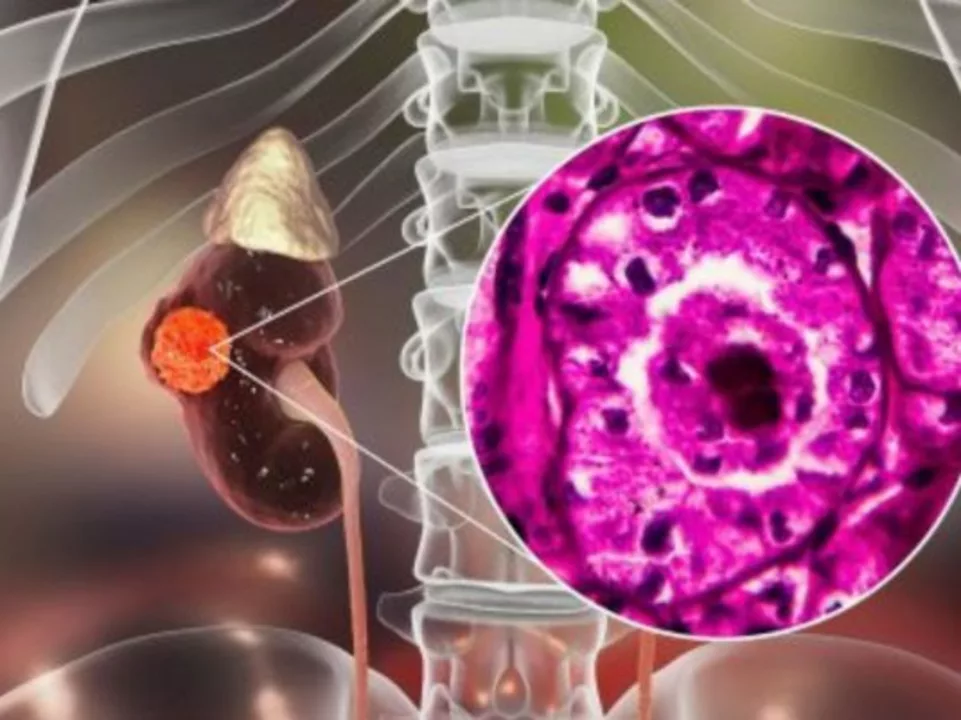Advanced Renal Cell Carcinoma: What to Know Now
Advanced renal cell carcinoma (RCC) means kidney cancer has grown beyond the kidney or spread to other organs. That sounds scary, but there are many modern treatments that can control disease and help you feel better. This page explains the common tests, main treatment choices, and easy steps you can take to manage side effects and stay informed.
Treatment options explained
Treatment depends on where the cancer is, your overall health, and prior therapies. Surgery can still be useful for someone’s remaining tumor or to relieve symptoms. For widespread disease, the most common medical treatments are targeted therapy and immunotherapy.
Targeted drugs (often called TKIs) block signals cancer cells use to grow. Examples you may hear about include sunitinib, pazopanib, cabozantinib, and axitinib. These can shrink tumors or slow growth, but they can cause high blood pressure, tiredness, diarrhea, or skin changes.
Immunotherapy helps your immune system attack cancer. Common drugs include nivolumab and pembrolizumab, sometimes given alone or combined with another drug like ipilimumab or a TKI. Combinations can work better for some people but may increase immune-related side effects such as rash, colitis, or thyroid problems.
Other options include mTOR inhibitors (everolimus), local radiation for painful spots, and procedures to remove or treat specific metastases. Clinical trials are also a good option to ask about—new drugs and combos are tested regularly and might be a match.
Practical tips for patients
Keep a symptom diary. Note new symptoms, when they happen, and how severe they are. That helps your care team adjust doses or switch treatments quickly.
Track basic measures: blood pressure, weight, and appetite. Many targeted drugs raise blood pressure; catching that early is simple and helpful. Bring a list of all meds and supplements to every visit—some interactions matter.
Don’t ignore side effects. Fatigue, nausea, diarrhea, and skin issues are common and often manageable with simple changes or supportive meds. Ask your clinic about diet tips, anti-nausea drugs, and when to call urgently (fever, severe abdominal pain, sudden shortness of breath).
Ask these questions at appointments: What is my cancer’s subtype? Why this treatment now? What side effects should I expect? Are there trials I qualify for? How will we measure response?
Lean on help: social workers, nurse navigators, and patient groups can guide insurance, travel for treatment, and emotional support. Small daily routines—short walks, regular meals, sleep hygiene—can keep you stronger for therapy.
If you want concise summaries of specific drugs or tips for clinic visits, PharmRx-1: Your Comprehensive Pharmacy Guide has clear articles and links to patient resources. Bring those to your next appointment if it helps start the conversation.
Understanding the Stages of Advanced Renal Cell Carcinoma
As a blogger, I recently delved into understanding the stages of advanced renal cell carcinoma. This type of kidney cancer can be quite aggressive and has distinct stages, each with its own characteristics and treatment options. Through my research, I discovered that early detection is key to successful treatment and that the later stages, unfortunately, have a lower survival rate. It's important for everyone to be aware of the risk factors and symptoms to help with early diagnosis. Stay informed and don't hesitate to consult your healthcare provider if you have any concerns.

